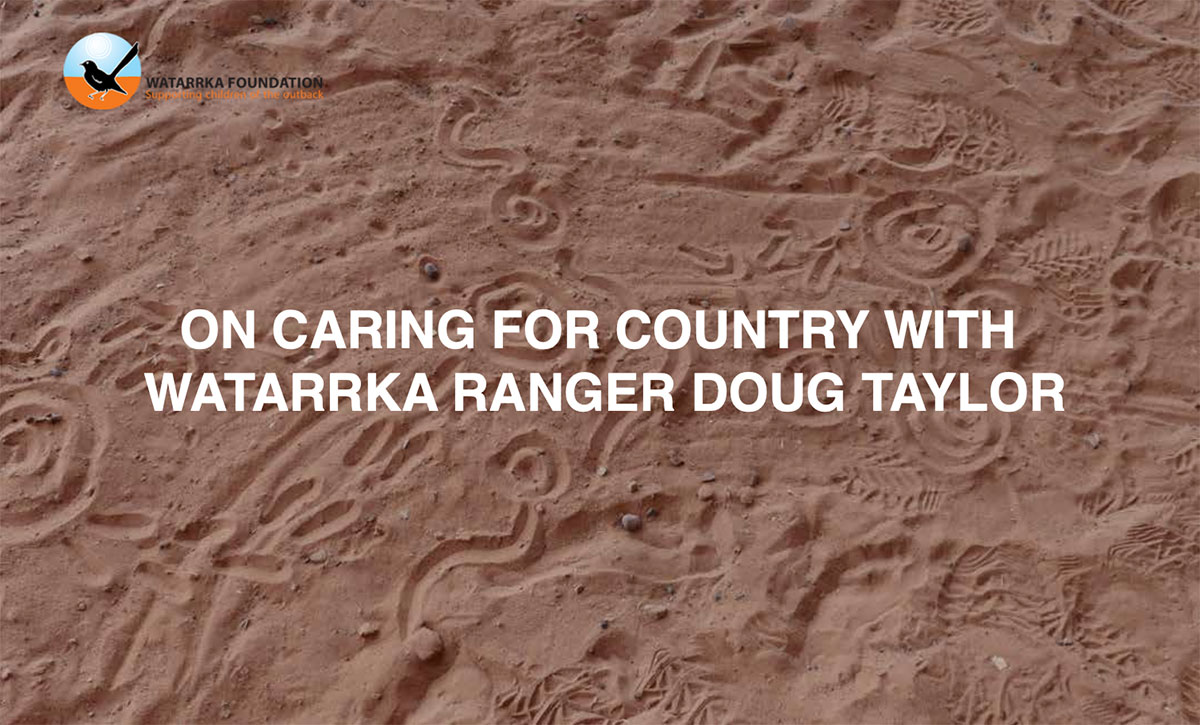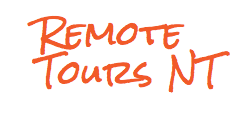
This month, the Watarrka Foundation had a chat with our friend Doug Taylor on the importance of caring for Country and life as a Ranger in the Watarrka National Park.
The Watarrka National Park encompasses roughly 1000 square kilometres of protected land about 4 hours drive South West from Alice Springs. It includes the western end of the Georges Gill Range and is home to a diverse range of plants and wildlife due to its varied, scenic landscape, made up of rugged sandstone ranges, moist gorges and rock holes.
The Traditional Owners of the Watarrka National Park are the Luritja and Multitjarra people who jointly manage care of the land alongside the Parks and Wildlife Commission of the Northern Territory, where Rangers like Doug work hard to care for Watarrka as a site abundant with cultural and ecological significance.
"Caring for Country is such an important way of preserving the past and preserving the future for all of us," says Doug. "The ancestors played their part for thousands of years with traditional practices that showed respect for Country. Of course we live in a modern time now with many different factors that have had huge effects on the land, but we can make a difference. Sometimes all it takes is to take the time to listen, observe and learn. Nature will teach you everything you need to know, you just have to give it time to show you."
Last October, the Watarrka Foundation invited Doug to speak to the students from Papunya and Areyonga Schools at the 2023 Sports & Storytelling Festival at Lilla in the Watarrka National Park. The festival's goal was to encourage young Aboriginal people to attend school and learn the importance of education. Doug was able to share a bit about his experience working as an Aboriginal Ranger with the students and why attending school is so crucial.
"The advice I would give to young Aboriginal people [who are interested in becoming a ranger or working in land care on Country] is that there are many opportunities to grasp if you can stay at school long enough to learn some of the really important parts that will help to be able to become a Ranger or to work on a National Park. There a good training opportunities in National Parks so just that extra little bit of education is so important to reach that first step."
Before becoming a ranger in 2020, Doug spent 16 years as a Cross Cultural Specialist Guide at the Alice Springs Desert Park, an environmental education facility and wildlife park in Alice Springs in the Northern Territory. "My time at the Desert Park was great and it allowed me to make an easier transition into the Ranger role," says Doug.
"[Being a Ranger] has many good parts which makes it very satisfying. Just to be on Country on a daily basis and doing tasks that may not seem to be important at the time but they grow into something that is very significant."
Aboriginal Australians have been living in the Watarrka region for over 20,000 years. As a home to over 750 plant species, including rare cycads, ferns, eucalyptus, acacia and desert oaks, it is crucial to sustain the care of this land for the generations that follow. We asked Doug what is one thing that Australians can do to help preserve places like the Watarrka National Park:
"The one thing all Australians can do is to show respect for places like Watarrka National Park," says Doug. "With respect comes an understanding of why these places were important to people in the past but also to future generations of people. To be honest most of the people I have encountered as a Ranger do show that respect which is very pleasing. They admire the natural beauty of the place and respect the efforts that have been made over the years for them to enjoy their visit to this part of the country."
To support the Foundation and our projects within the Northern Territory, make a donation at www.givenow.com.au/watarrkafoundation






Copyright © 2026 All Rights Reserved | Privacy | Terms & Conditions